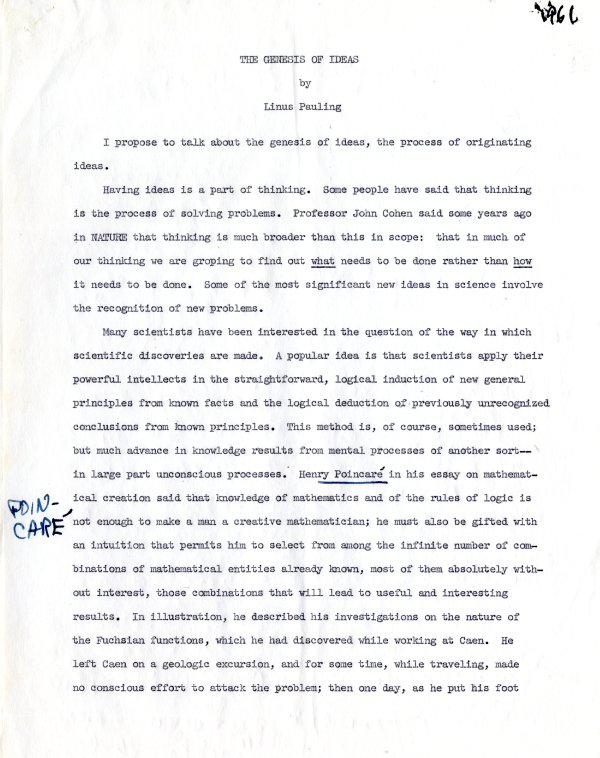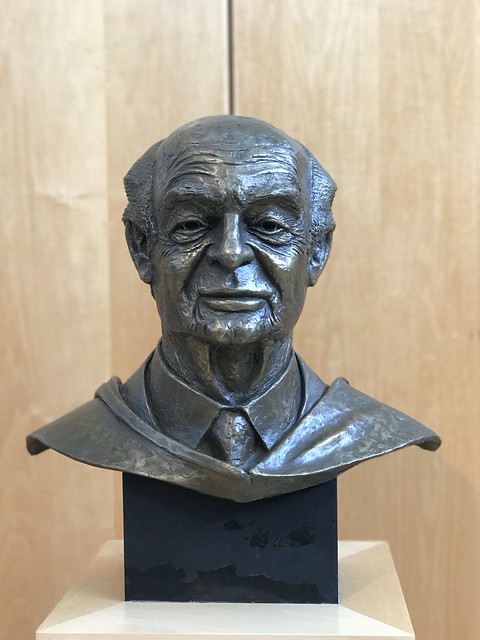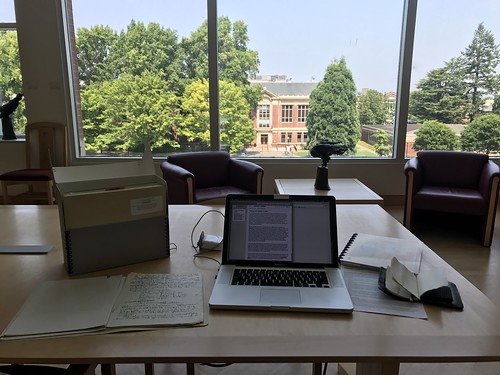So said Linus Pauling in a 1961 talk on “The Genesis of Ideas,” which I just discovered via Robert Scott Root-Bernstein. “As the world becomes more and more complex and the problems that remain to be solved become more and more difficult,” he concludes, “it becomes necessary that we increase our efforts to solve them. A thorough study of the general problem of the genesis of ideas and the nature of creativity may well be of great value to the world.”
Pauling gave a very interesting account of one method he learned to use:
I had developed the habit of thinking about certain scientific problems as I lay in bed, waiting to go to sleep. Sometimes I would think about the same problem for several nights in succession, while I was reading or making calculations about the problem during the day. Then I would stop working on the problem, and stop thinking about it in the period before going to sleep. Some weeks or months might go by, and then, suddenly, an idea that represented a solution to the problem or the germ of a solution to the problem would burst into my consciousness.
I think that after this training the subconscious examined many ideas that entered my mind, and rejected those that had no interest in relation to the problem. Finally, after tens or hundreds of thousands of ideas had been examined in this way and rejected, another idea came along that was recognized by the unconscious as having some significant relation to the problem, and this idea and its relation to the problem were brought into the consciousness.
So Salvador Dali wasn’t the only one to try to turn dreaming into a skill.
I remember quite clearly when I was writing my dissertation, entering a phase where I stopped dreaming about having my computer blow up or the pages blow away, and started dreaming about the people I was writing about. Granted, they would generally chastise me for getting something wrong, but still, it felt like an advance of some kind, like my mind was going deeper into my work.
I often jot down the two or three things I’m going to write about the next morning.
Now, at night when I set up my morning’s work, I will often jot down the two or three things I’m going to write about when I get up, partly on the theory that my mind might work on them while I sleep. I don’t know if it’s the case, but I certainly have found that I get a lot of writing done in the mornings.
Oregon State, incidentally, has scanned the talk and put it online. It’s cool to see the original document.



